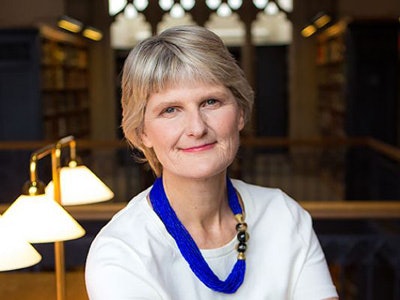Vassar College, a private liberal arts institution known for recruiting one of the most diverse student bodies among elite colleges and universities, announced the election of its 11th president Wednesday. Elizabeth Howe Bradley, a professor of public health and head of Branford College at Yale, will take over the leadership of Vassar on July 1.
 Elizabeth Howe Bradley
Elizabeth Howe BradleyIn a phone interview with Diverse, Bradley commended the Poughkeepsie, New York, institution for its academic excellence and system of governance, a balance of power shared among the faculty, board and president. She emphasized the importance of Vassar’s commitment to what she called its core values of diversity and inclusion.
“I think managing a community that is diverse but allows the topics that they argue about to actually galvanize instead of divide the community is a 21st century leadership challenge, and something that I’m excited to work on,” Bradley said.
Issues of diversity and inclusion are prevalent on many college campuses, including at Yale, which saw a particularly high-profile controversy unfold after a Yale lecturer sent out an email in the fall of 2015 suggesting that students should be free to wear the Halloween costume of their choice, regardless of its potential to cause offense to minority groups. The email was subsequently shared widely and caused a major upset on campus.
More recently, Yale students have advocated to change the name of Calhoun College, named after John C. Calhoun, a former Yalie and South Carolina politician who defended slavery in the years leading up to the Civil War. Calhoun College retains its name.
Bradley has spent the past 20 years at Yale, serving as the head of Branford, the largest of Yale’s 12 undergraduate colleges.
“As the head of Branford College here, I’ve really worked with students to be able to understand what open dialogue is,” Bradley said. “How do we dialogue with each other so we really understand what difference is and value it, not just tolerate each other, actually value each other for our differences?”
She is also founder and director of the Yale Global Health Leadership Institute, which oversees education and research programs in China, the United Kingdom, Ethiopia, Ghana, Liberia, Rwanda, and South Africa. Before moving to Yale, Bradley was an administrator at Massachusetts General Hospital in Boston.
Bradley will succeed Catharine Bond Hill, who led Vassar from 2006 to 2016. Under Hill’s leadership, Vassar made good on its commitment to increase racial and economic diversity on campus. According to The New York Times’ College Access Index, Vassar had the largest share of Pell Grant-recipients of any four-year, liberal arts school in 2015. Pell Grant-recipients are often used as a metric to determine an institution’s economic diversity, since Pell-eligible students can come from households earning up to $75,000.
In the 2016-17 academic year, 34 percent of Vassar students identify as minority, up from 22 percent in 2006-07, at the start of Hill’s tenure. The percentage of students receiving Pell Grants this year is 23 percent, up from 12 percent in 2007, a college representative said.
Bradley said that she would have a better sense of specific goals for the college after dialogue with faculty, students and administrators. “As a new president coming in, my first goal is to really sit down and talk with everyone who is there and learn,” Bradley said. She affirmed that the college’s commitment to diversity will not change.
She praised Vassar’s historic identity as an all-women’s college. The college officially became co-educational in 1969.
“I think Vassar’s history as first opening its doors to give access to education to people who were otherwise not able to get a high-quality college education — that root beginning is so important to who Vassar is today,” she said. “Back then it was women. Today, there are so many other groups unable at times to access this kind of education.”
Bradley is a native of Connecticut, and studied economics and art history as an undergraduate at Harvard University. She went on for an MBA from the University of Chicago and a Ph.D. in health policy and health economics from Yale.
Staff writer Catherine Morris can be reached at [email protected].















